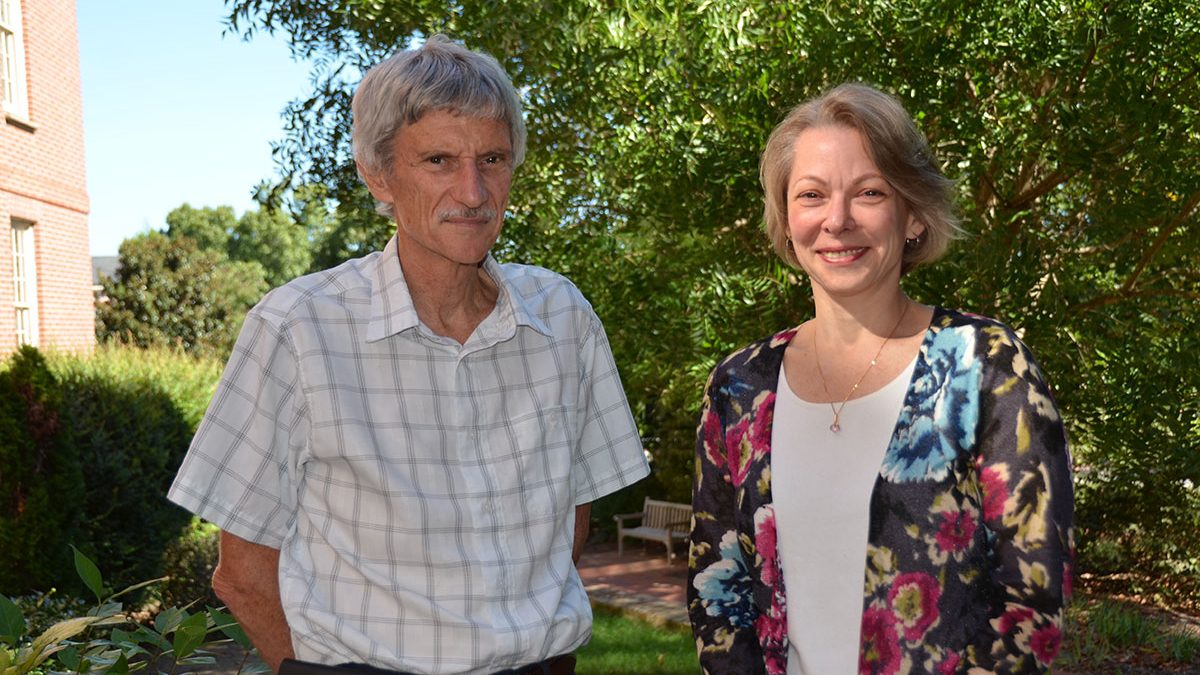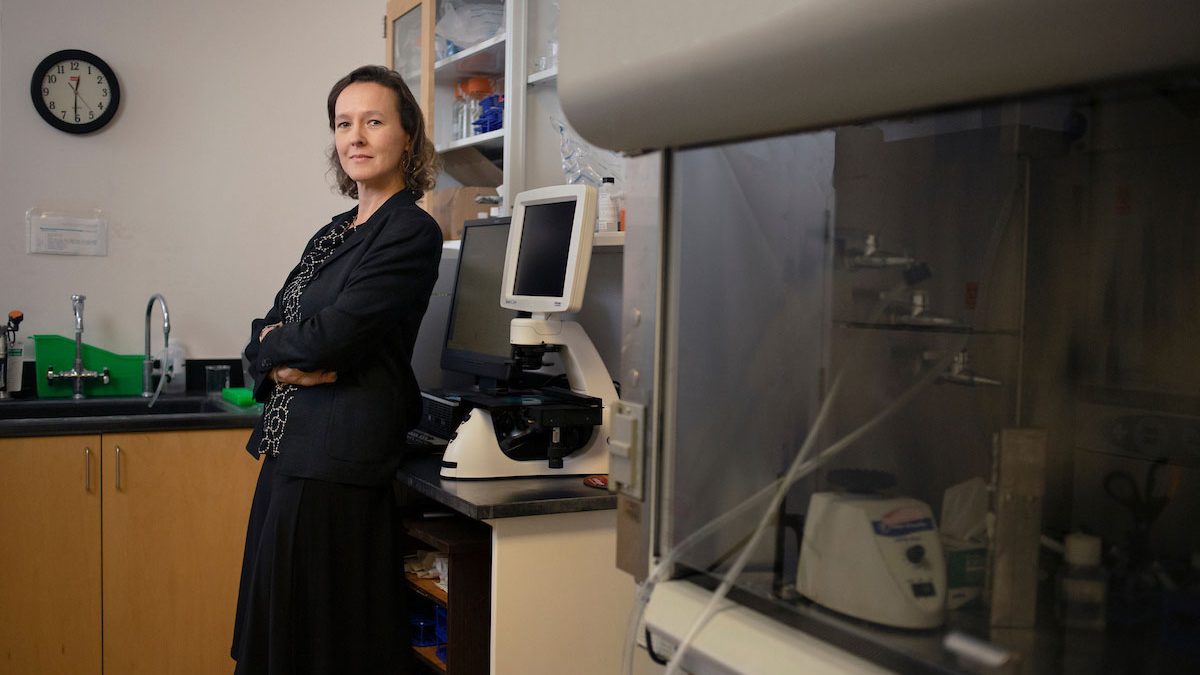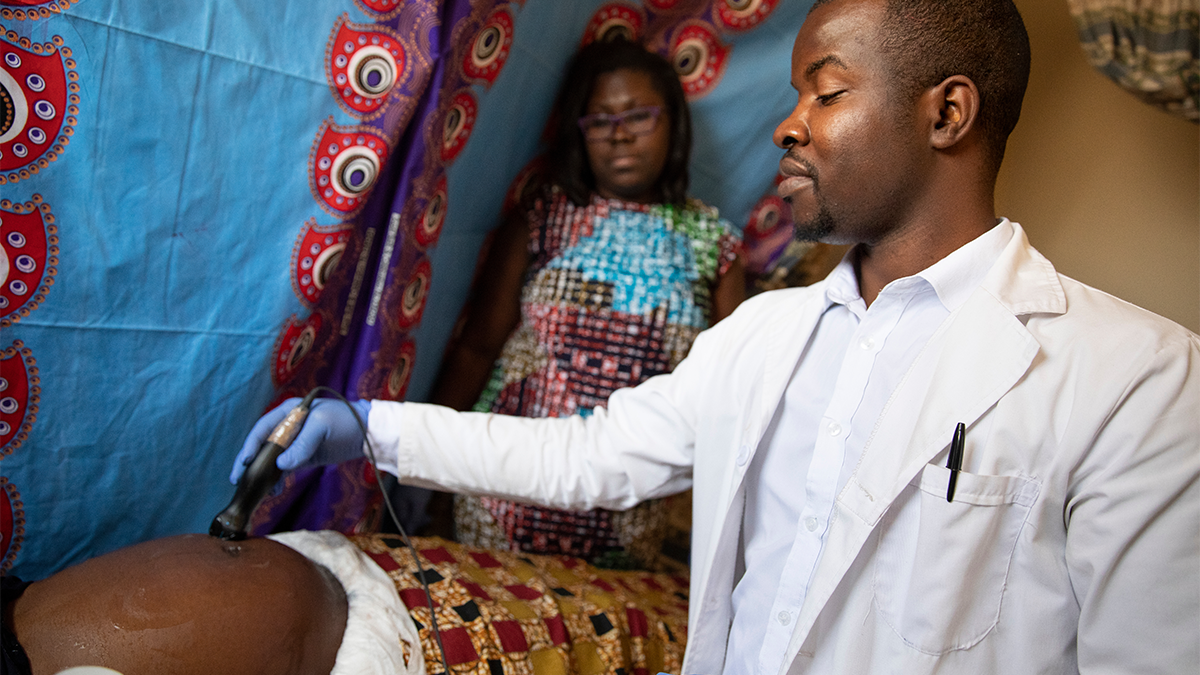Breathing…a sigh of relief for asthma sufferers
People with severe asthma have trouble breathing almost all of the time and experience frequent, debilitating attacks. It’s not only frightening; it can be deadly.

People with severe asthma have trouble breathing almost all of the time and experience frequent, debilitating attacks. It’s not only frightening; it can be deadly.
Drs. David Couper (left) and Anastasia Ivanova | Photo Credit: Linda Kastleman/UNC Gillings School of Global Public Health
A person struggles, then panics, gasping for air but unable to get any into the lungs — as if “I were trying to breathe air underwater” or “an elephant is sitting on my chest.”
Those are the most common analogies cited for what a severe asthma attack is like. A new $61 million study led by researchers at UNC-Chapel Hill will try to identify more effective treatments for such attacks and will do so by combining two important tools — precision medicine and “big data” analysis.
The five-year study is being led by Anastasia Ivanova,Opens in new window associate professor of biostatistics at UNC’s Gillings School of Global Public HealthOpens in new window. Co-principal investigators include David Couper, Opens in new windowclinical professor of biostatistics, and David B. Peden,Opens in new window senior associate dean for translational research at UNC’s School of MedicineOpens in new window and adjunct professor of environmental sciences and engineering.
The study, funded by the National Heart, Lung and Blood InstituteOpens in new window (NHLBI), was awarded to Ivanova under the auspices of the Collaborative Studies Coordinating CenterOpens in new window (CSCC), which is housed in the biostatistics departmentOpens in new window in the Gillings School of Global Public Health.
Severe asthma affects nearly 10 percent of people worldwide, and despite currently available treatments, the condition remains poorly controlled for many patients. The NHLBI study and clinical trials will support a personalized medicine approach to identify new therapies for severe asthma, tailored to an individual’s disease and treatment history.
“People with severe asthma have trouble breathing almost all of the time and experience frequent, debilitating attacks,” Ivanova said. “It’s not only frightening; it can be deadly.”
Ivanova noted that her son has a light form of asthma.
“I can only imagine what patients with severe asthma go through on a daily basis,” she said.
Ivanova and her colleagues hope to reduce these episodes with an innovative new, large-scale study that will select patients and their treatments based on biomarkers.
“In addition to using specific biomarkers to pair patients with specific treatments aimed at those biomarkers, our study will allow changes to therapies as new data is gathered,” Ivanova said. “So, if a patient is not doing well on his or her current therapy, it will be possible for the patient to switch therapies in the course of the trial.”
There also will be extensive data collection during the clinical trials to help further refine treatments, not only for the study participants, but also for others with similar or identical biomarkers. Ten medical centers across the United States have been approved by the National Institutes of Health (NIH) to conduct the trials.
The project, formally known as “Data, Modeling and Coordination Center for NHLBI’s Precision Interventions for Severe and/or Exacerbation-Prone Asthma (PrecISE) Network,” also will engage biostatistics faculty members Michael R. Kosorok,Opens in new window who is the W.R. Kenan Jr. Distinguished Professor and chair of the department, and professor Donglin ZengOpens in new window, as well as Wanda O’Neal,Opens in new window an associate professor of medicine at UNC’s School of Medicine.





